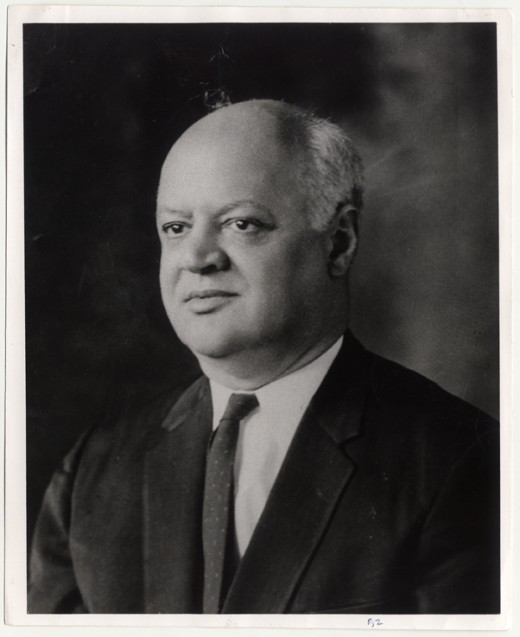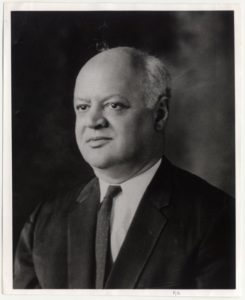A. P. Tureaud
A. P. Tureaud was a key legal activist in an era of vigorous challenges to Jim Crow in twentieth-century Louisiana.

Courtesy of Amistad Research Center at Tulane University
A.P. Tureaud. Unidentified
AAlexander Pierre (“A.P.”) Tureaud was a key legal activist in an era of vigorous challenges to Jim Crow in twentieth-century Louisiana. From the beginning of his legal career in New Orleans in the 1920s until his death in 1972, Tureaud directed the most substantive assaults on racial segregation in Louisiana’s history. Though largely unsung, Tureaud was a student of Charles Hamilton Houston at Howard University and an associate of Thurgood Marshall. His legal victories played an important role in the modern civil rights movement nationwide.
A descendant of free people of color, Tureaud was born February 26, 1899, in New Orleans. He attended elementary and high school in New Orleans, then moved to Chicago, Illinois, and Annapolis, Maryland, in the late 1910s. In 1921, he entered Howard University Law School in Washington, D.C. In 1922, Tureaud attended a lecture by James Weldon Johnson, then the executive secretary of the National Association for the Advancement of Colored People (NAACP). Tureaud immediately joined the organization. He graduated from Howard Law School in 1925, but due to the whites-only admissions policies in Louisiana’s law schools, Tureaud was one of fewer than twenty practicing African American attorneys in Louisiana until the 1950s.
Racial discrimination in Louisiana was most acute in its educational system. Pronounced racial bias in teacher pay and woefully inadequate schools for black children reinforced the deeply rooted black poverty in the state. For instance, historian Adam Fairclough finds that between 1935 and 1945 the median expense of white children’s education was $56 per year per child, compared to $14 per year per black child. Similarly, a study in the 1940s funded by the NAACP found that in Louisiana African American teachers were paid 64 percent less than white teachers. The academic year in African American schools also averaged thirty-seven days shorter than that of white schools. Until the 1950s, instruction in African American schools was confined to the elementary level, and most black children had few opportunities to attend school after age fourteen. Tureaud exposed these most glaring inequities in Louisiana’s segregated school system and targeted them for an eventual resolution by the United States Supreme Court.
In the 1930s, Tureaud joined the NAACP Legal Defense Fund, Inc., and filed many lawsuits to force Louisiana to enforce the separate-but-equal doctrine established in Plessy v. Ferguson (1896). The strategy was to compel the state first to fund African American schools equally and—when this became too expensive—then persuade the state to do away with segregation altogether. With the assistance of Thurgood Marshall, the lead attorney in the NAACP Legal Defense Fund, Tureaud earned an early victory in the Joseph P. McKelpin v. Orleans Parish School Board (1940). Serving as special counsel, Tureaud argued for salary equity for African American and white teachers. He launched a series of lawsuits in the 1940s and 1950s, notably Willie Robinson v. LSU Board of Supervisors and Bush v. Orleans Parish School Board, that resulted in the desegregation of Louisiana State University and the Orleans Parish School District.
He continued his work toward the desegregation of public education facilities and the equality of political rights for African Americans. In the 1950s, Tureaud was a founding member of the Louis Martinet Legal Society, a still-extant legal organization that addresses racial discrimination and civil rights violations in the state. In the 1960s, Tureaud mentored several young minds and encouraged them to continue the struggle to end segregation. In 1977, one of Tureaud’s law partners, Ernest “Dutch” Morial, became the first black mayor of New Orleans. Tureaud died of cancer on January 22, 1972. A major thoroughfare, a memorial park, and an elementary school have been named in his honor in New Orleans.
